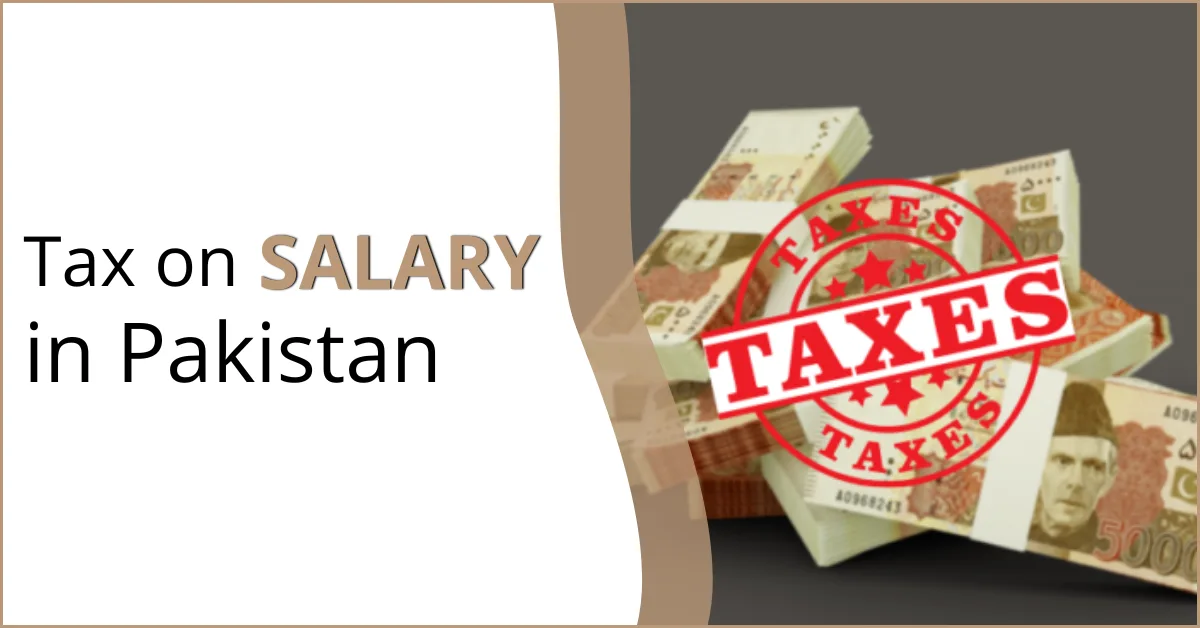Understanding Tax on Salary in Pakistan: Updated 2025 Rates
Do you check your salary slip and wonder why your take-home pay feels smaller than expected? That’s tax on salary in Pakistan working behind the scenes.
In 2025, understanding your salary tax isn’t just smart—it’s essential for every salaried individual. Whether you’re a junior analyst or a senior manager, knowing how your salary is taxed helps you plan better, save more, and stay compliant with FBR regulations.
Let’s break it down into simple, bite-sized info.
What is Tax on Salary in Pakistan?
Salary tax in Pakistan is a withholding tax deducted by your employer each month before you receive your salary. It is based on progressive tax slabs—the more you earn annually, the higher the percentage you pay.
Legal Requirement
If your annual income exceeds PKR 600,000, you are legally required to file an income tax return with the Federal Board of Revenue (FBR). Don’t worry—you don’t need to be a tax expert to manage this. You just need the right information and smart planning.
Salary Tax Slabs for 2025
The FBR revises tax slabs every fiscal year. Here are the updated income tax slabs for salaried individuals in 2025:
| Annual Salary (PKR) | Applicable Tax Rate |
| Up to 600,000 | 0% (Exempted) |
| 600,001 – 1,200,000 | 5% |
| 1,200,001 – 2,400,000 | 10% |
| 2,400,001 – 3,600,000 | 15% |
| Above 3,600,000 | 20% to 35% (progressive) |
Note: Higher income earners pay more based on marginal rates.
How to Calculate Your Salary Tax in 2025
Here’s a step-by-step method:
- Calculate your gross annual salary (monthly salary × 12)
- Find your tax bracket using the table above
- Apply the tax rate on the amount exceeding the lower limit
- Subtract the tax from your gross to get your net take-home salary
Pro Tip: Use the FBR Salary Tax Calculator for a precise, automated calculation.
Example:
If you earn PKR 1,800,000/year, your tax would be:
Key Points to Remember
How to Save on Salary Tax Legally

Don’t overpay when there are smart, legal ways to lower your tax bill. Here are some:
- Claim tax-free allowances:
- Medical reimbursements
- Education expenses
- Travel allowances
- Invest in tax-exempt schemes:
- Pension funds (VPS)
- Government bonds or mutual funds
- Declare dependents:
If you support family members financially, you may get relief. - Utilize deductible expenses:
Donations to approved charities can reduce taxable income.
A little planning can save you thousands of rupees annually.
Benefits of Filing Salary Tax
Besides compliance, there are real-life perks to being a tax filer:
| Benefit | Why it Matters |
| Loan eligibility | Banks prefer filers for mortgages & car financing |
| Visa processing | Embassies may require tax proof for visa applications |
| Lower withholding taxes | On banking transactions, vehicle registration, etc. |
| No legal penalties | Avoid audits, fines, and stress |
| Financial clarity | Know your income, deductions, and net worth |
Common Mistakes to Avoid
Be honest, be accurate—and your financial health will thank you
Stay Informed, Stay Ahead
In a fast-changing economy, tax laws evolve frequently. Salaried individuals should keep an eye on updates and seek help when needed.
For more insights into Pakistan’s business and tax landscape, check these guides:
Conclusion
Whether you’re new to the workforce or a seasoned executive, understanding tax on salary in Pakistan in 2025 is not optional—it’s essential.
Need help with tax filing, planning, or compliance? Reach out to Waystax—your trusted partner for stress-free salary tax solutions.
Stay updated, stay compliant, and take control of your financial future.

